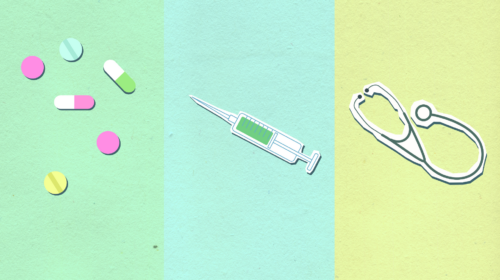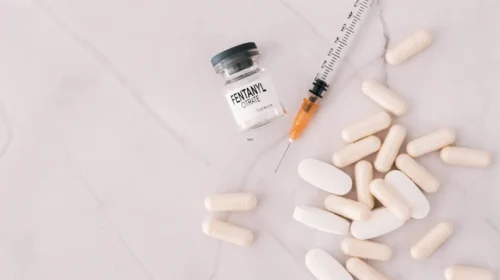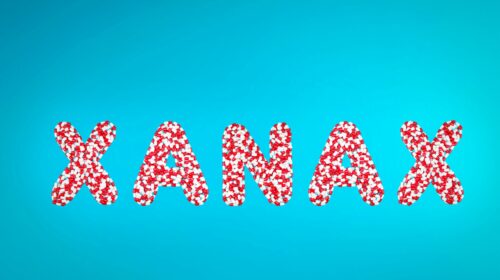“Alcohol and drug addiction is a choice.” This has become a common mentality related to the struggles of substance use disorders, leading people to believe that pure willpower is enough to overcome addiction. If they fail, it’s because they’re weak or lack self-control.
The reality is much more complicated. Addiction’s relationship to the brain and mental health disorders has been the focus of research for decades, but opponents still argue that it’s a matter of choice and willpower.
Is Addiction a Choice? Exploring the Stigma
Drugs are heavily stigmatized in society, but it wasn’t always that way. In the 1970s, New York’s governor, Nelson Rockefeller, saw drugs as a social problem, not a criminal one. He was a proponent of drug rehabilitation, housing, and job training to help people overcome addiction – right in the middle of a heroin epidemic and rising crime rate.[1]
Society was hardening its attitudes on drugs, however. President Richard Nixon declared the national war on drugs, and Rockefeller had a dramatic shift in attitude. He decided progressive approaches were failing and chose to adopt a zero-tolerance policy with life sentences, no parole, and no probation to protect “innocent victims.”[2] Other states adopted mandatory minimum sentences, as well as the federal government.
But around 50 years later, we’re still fighting the “war on drugs,” stigmatizing drug use, and treating addiction like a moral failing. The negative attitudes keep addiction in the shadows and create barriers to treatment that only worsen the problem.
Treating drug use as a criminal activity perpetuates the stereotype of people who use drugs as a danger to society and public health. People with addiction receive a lower quality of care – or may not seek care at all – because of the stigma.[3] They may increase substance use due to guilt or shame, reinforcing their behaviors.
The Model of Addiction as a Disease
The definition of addiction varies among organizations, individuals, and society, but nationally recognized organizations that address substance use have evolved to understand addiction as a disorder or disease, not a matter of choice. This is based on its long-term and relapsing nature.
If it’s difficult to imagine addiction as a disease, consider comparing it to a chronic disease of an organ, such as the heart. Addiction and heart disease impact the regular function of the organ – the brain and heart, respectively. They both increase the risk of premature death and can impact quality of life.
Addiction and heart disease are both treatable, which can reverse some of the effects, and can be preventable with healthier lifestyle choices. In that respect, if addiction is a choice, it stands to reason that heart disease, diabetes, or even cancer is a choice. Yet these diseases are not often viewed as a moral failing.
Addiction as a Choice
Though the opinion of the medical and mental health communities has evolved, some still argue that addiction is not a disease because it’s not contagious, autoimmune, degenerative, or hereditary. It’s self-acquired, meaning people give it to themselves, and the treatment is merely to stop.
One of the most controversial viewpoints comes from Gene Heyman’s Addiction: A Disorder of Choice. Written in 2009, this Harvard psychologist argued that addiction is not a chronic, relapsing brain disease, but an example of choice that is voluntary and self-destructive.[4]
Some opponents of the disease model have more compassionate outlooks, however. Marc Lewis, a neuroscientist in recovery, argues that addiction is more common than society believes and that people with addiction don’t view themselves as “sick.”[5] He believes that’s a positive sign for recovery, providing more of a message of empowerment than impotence. Still, he acknowledges that overcoming addiction is extremely challenging.
While it’s true that some addictions arise from a person making the choice to try a drug for the first time, this viewpoint ignores the many factors that influence addiction leading up to that moment.
Causes and Risk Factors for Addiction
Addiction isn’t determined by one factor, but the likelihood of developing an addiction increases with more risk factors:
- Biology: There’s a genetic component to addiction. About half of the genes that people are born with account for their risk for addiction, and the presence of other mental health disorders may factor in.
- Environment: The environment a person grows up in, including the influences of their family, friends, socioeconomic status, and trauma, plays a big role in addiction. Factors like peer pressure, abuse, stress, parental guidance, and exposure or normalization of drug use can increase the risk of addiction.
- Development: Genetic and environmental factors collide at critical developmental stages to influence addiction risk. While addiction can develop at any age, earlier drug use is correlated with eventual addiction, especially in teens. This is due to the underdeveloped parts of the brain that control judgment, impulse control, and decision-making.[6]
Rewiring Rewards and Addiction: Effects of Drugs on the Brain
Some people experiment with different drugs and never become addicted, while others may try drugs casually and develop an addiction. The risk factors play a part in who becomes addicted and who doesn’t, but the drugs themselves are self-reinforcing.
Most drugs cause euphoria by impacting the brain’s rewards center, flooding the brain with the feel-good hormone dopamine. In a healthy brain, the reward center motivates naturally pleasurable behaviors like eating or sex.
The surges of dopamine instead reinforce pleasurable but unhealthy behaviors like using drugs, encouraging repeated drug use to sustain that high.[7] The brain adapts to continued drug use by limiting the response to them, reducing the euphoria (tolerance). It takes more of the drug to achieve the same effects while also reducing the person’s ability to enjoy naturally rewarding behaviors like activities, food, or sex and beginning the vicious circle of addiction.[8]
Signs and Symptoms of Addiction
Drug addiction is officially known as a substance use disorder characterized by the inability to control the use of a substance, such as marijuana, cocaine, heroin, nicotine, or alcohol, despite the harm it may cause.
A substance use disorder can develop from experimentation with a recreational drug in a social environment, but not always. Some people become addicted after taking prescribed medications, such as opioid painkillers.
Though the Diagnostic and Statistical Manual of Mental Disorders, Fifth Edition (DSM-5) subcategorizes substance use disorders, the criteria include:
- Consuming a substance in larger amounts or for longer periods than intended.
- A desire to cut back or stop using a substance unsuccessfully.
- Spending a lot of time obtaining, using, or recovering from a substance.
- Experiencing intense cravings.
- Failing responsibilities at work, home, or school.
- Continued use of a substance despite social or interpersonal problems.
- Stopping activities or hobbies to use a substance.
- Increased risk-taking behaviors while using a substance, such as driving.[9]
Seeking Treatment for Addiction
If you or a loved one is struggling with alcohol or drug addiction, help is available. Comprehensive addiction treatment can address the physical aspects of addiction and the psychological influences to promote long-term recovery.
Addiction treatment always begins with a thorough assessment to understand your specific health and mental health history, the substances involved, treatment history, and current stressors. This is used to prepare an individualized treatment plan that’s suited to your needs, which may include:
- Medical detox, which helps with the withdrawal process to keep you safe and comfortable while the drug clears your system.
- Inpatient treatment provides 24/7 residential care with intensive treatment programs and a strong support system.
- Outpatient treatment offers treatment sessions during the day with the flexibility to sleep at home and manage day-to-day responsibilities.
Whether Disease or Choice, Addiction Requires Treatment
Addressing addiction as a disease rather than an outdated, ill-informed relic serves to destigmatize it, upend stereotypes, and promote appropriate treatment and services to help people recover and live healthier lives. If you’re ready to get on the path to recovery, Recovery Unplugged can help. Contact us today to learn more about our addiction treatment options.

























